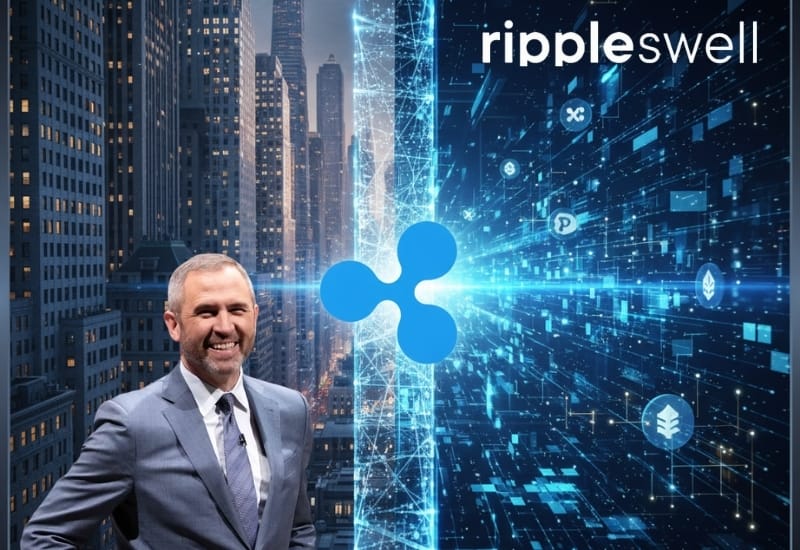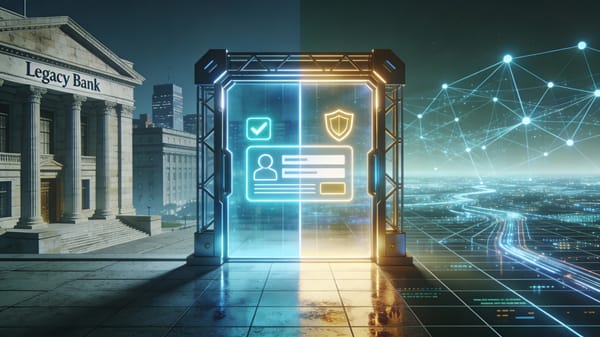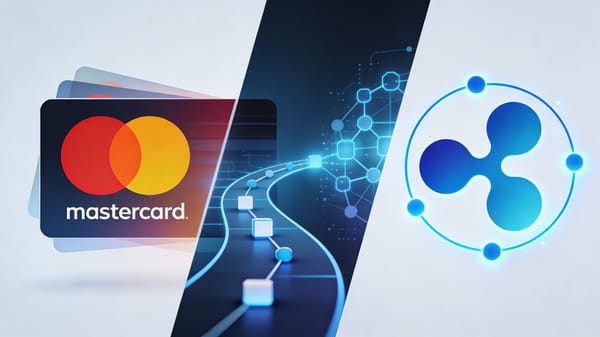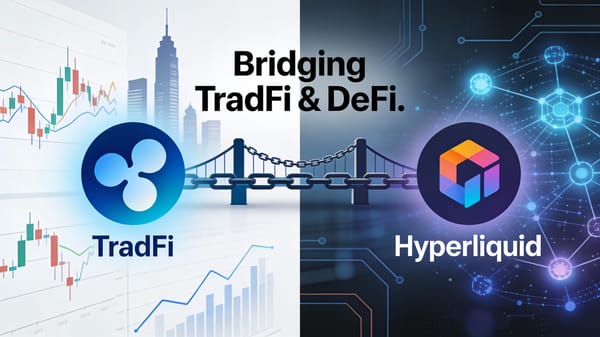Brad Garlinghouse Reaffirms XRP's Central Role as Ripple Secures $500M at $40B Valuation
Ripple CEO Brad Garlinghouse reaffirms "XRP sits at the center of everything" while announcing $500M investment at $40B valuation from Fortress and Citadel. What it means for institutional adoption and XRP's future.

Ripple CEO Brad Garlinghouse delivered one of the company's most significant interviews at Swell 2025, firmly putting to rest speculation about XRP's future role while simultaneously announcing a massive $500 million strategic investment valuing the company at $40 billion. The announcements, made during Ripple's annual flagship conference on November 4-5, 2025 in New York City, mark a pivotal moment for the company following its strongest year on record.
Setting the Record Straight: XRP at the Center
In an interview with Crypto America at Swell 2025, Garlinghouse directly addressed persistent rumors about Ripple distancing itself from XRP. "People say Ripple's given up on XRP — that just doesn't make sense," Garlinghouse stated, before delivering his most definitive statement yet: "XRP sits at the center of everything Ripple does."
The Ripple CEO explained that the company strategically deploys both XRP and its RLUSD stablecoin depending on the specific payment corridor and use case. "XRP is very scalable, very fast, and very inexpensive. It's the right tool for certain jobs," Garlinghouse said during the interview.
Adding context to XRP's institutional utility, Garlinghouse revealed a significant detail that many observers missed: "In early 2023, Ripple was minting 20% of all USDC for institutional flows." Now, according to the CEO, Ripple Prime is clearing both XRP and RLUSD inside the United States, bringing full institutional liquidity to Ripple's ecosystem.
🚨BREAKING: Brad Garlinghouse Just Dropped Ripple’s Most Powerful Interview Yet — “XRP sits at the center of everything we do.” ⚡️
— Diana (@InvestWithD) November 5, 2025
Live from @CryptoAmerica_ at @Ripple Swell 2025, @bgarlinghouse didn’t hold back. This wasn’t your usual corporate talk — it was raw, direct, and… pic.twitter.com/MHeHliAM8o
Wall Street Votes with $500 Million
On November 5, 2025, Ripple officially announced the close of a $500 million strategic investment at a $40 billion valuation. The round was led by funds managed by affiliates of Fortress Investment Group and Citadel Securities, with participation from Pantera Capital, Galaxy Digital, Brevan Howard, and Marshall Wace.
"This investment reflects both Ripple's incredible momentum, and further validation of the market opportunity we're aggressively pursuing by some of the most trusted financial institutions in the world," Garlinghouse stated in Ripple's official announcement.
The investment follows a recent $1 billion tender offer at the same valuation, demonstrating sustained institutional appetite for exposure to Ripple's expanding suite of financial infrastructure products. The company has repurchased more than 25% of its outstanding shares in recent years, returning value to employees and early investors.
🚨BREAKING NEWS 🚨
— John Squire (@TheCryptoSquire) November 5, 2025
You’re watching the exact moment Brad Garlinghouse confirms a $500M investment in Ripple live at #Swell2025 backed by Fortress, Citadel, Pantera, Galaxy & Brevan Howard. 🇺🇸🚀💥
The crowd erupted in applause.
$40B valuation. 💰🚀
The #XRP era begins. 🌍🚀 pic.twitter.com/UQ9vj5Txkz
From Courtroom to Boardroom: Ripple's Transformation
Garlinghouse didn't hold back when reflecting on Ripple's journey from regulatory adversary to institutional darling. "A year ago, Ripple was still being sued by the SEC. Today, we've applied for a national bank charter," the CEO noted in his Swell interview.
The CEO described his experience with the previous regulatory environment bluntly: "I met with the SEC for years — not once did anyone suggest XRP was a security. Then they sued me personally. That was just bullying." He contrasted this with the current regulatory climate: "The task force could not have been more open, constructive, and genuinely curious. It's night and day."
This regulatory shift represents what Garlinghouse called a "profound" transformation: "The world's largest economy went from pretty hostile toward crypto to pretty friendly. That's 22% of global GDP that just flipped." He emphasized that the market hasn't fully priced in this fundamental change in the regulatory landscape.
Aggressive Expansion Through Strategic Acquisitions
Ripple has deployed approximately $4 billion across six strategic acquisitions in just over two years, including two deals valued at over $1 billion each. The company's acquisition strategy has systematically built out a comprehensive institutional financial infrastructure stack:
- Hidden Road (now Ripple Prime): A prime brokerage that cleared $3 trillion in transactions last year. Since the acquisition, client collateral has doubled, average daily transactions climbed to more than 60 million, and the business has tripled in size.
- GTreasury: A $1 billion acquisition providing treasury management services for Fortune 500 companies managing trillions in corporate liquidity.
- Rail: A $200 million acquisition adding stablecoin infrastructure capabilities to Ripple Payments.
- Palisade: Recently acquired custody provider expanding Ripple's digital asset custody capabilities.
"We're not replacing finance — we're updating it," Garlinghouse explained, summarizing Ripple's bridge strategy between traditional finance and decentralized systems.
RLUSD Momentum and Real-World Utility
This week, Ripple's RLUSD stablecoin surpassed $1 billion in market capitalization in less than a year since launch—a milestone that demonstrates rapid institutional adoption. RLUSD is already being used as collateral within Ripple Prime and is now integrated into the company's expanding ecosystem of products.
The timing of RLUSD's growth coincides with the passage of the GENIUS Act, which provided regulatory clarity for stablecoins in the United States. "In a post-GENIUS Act world, institutions are increasingly turning to trusted stablecoins like RLUSD for use cases such as treasury payments and collateral," Ripple stated in its announcement.
Additionally, Ripple Payments has processed over $95 billion in total volume, demonstrating substantial real-world adoption of the company's cross-border payment infrastructure. With 75 regulatory licenses globally, Ripple can move money on behalf of customers while cutting out intermediaries.
XRP Analysis: Institutional Infrastructure vs. Price Action
While Ripple secured massive institutional backing and Garlinghouse reaffirmed XRP's central role, the token's price response has been muted. XRP traded at approximately $2.27-$2.49 in the days surrounding these announcements, representing a decline from recent highs despite the positive corporate developments.
What the Developments Mean for XRP:
Institutional Infrastructure: Ripple Prime's expansion into collateralized lending for XRP and support for XRP-based institutional trading products represents tangible utility for the asset in traditional financial infrastructure. This infrastructure buildout creates actual demand pathways beyond speculative trading.
ETF Prospects: The Swell conference coincided with growing optimism around potential XRP ETF approvals, with Bitwise CEO Hunter Horsley suggesting an XRP ETF could mirror Solana's explosive success. Horsley noted that XRP has "strong community support and real-world utility in payments, making it a 'high-demand product' once available." However, no specific timeline for ETF approval has been confirmed.
Bank Adoption Clarity: According to comments captured in the original X post, U.S. banks currently cannot use crypto assets until there is "100% clarity" on regulatory separation of governing bodies. The post notes that "when XRP is the cheaper hop, banks like Euroxim and others will utilize XRP, but until there is 100% clarity in the U.S. banks will not use crypto assets, and RLUSD and/or other U.S. denominated stablecoins will be utilized first."
This suggests a phased adoption approach where regulatory clarity must precede widespread bank usage of XRP, even as the infrastructure to support such usage is being built today.
Liquidity Focus: When asked about price, Garlinghouse deflected but emphasized what he believes matters more: "Tight spreads mean better pricing for customers. That's what real adoption looks like." His focus on liquidity over price speculation signals Ripple's institutional priorities.
Long-Term Value Proposition: Garlinghouse's philosophical stance on XRP's value relates to its utility in the global financial system. As Black Swan Capitalist noted, "XRP isn't about who holds it, it's about what it connects. In the digital financial system, value will reflect the magnitude of global value it moves."
Looking Ahead
Garlinghouse's closing message at Swell reflected both confidence and ambition: "We've laid the foundation. The next 10 years will be the decade where crypto updates the financial system — not replaces it."
With Ripple now valued at $40 billion, backed by major Wall Street institutions, operating with 75 regulatory licenses, processing $95 billion in payment volume, and having applied for a Fed Master Account to operate with bank-like settlement capabilities, the company has positioned itself as the infrastructure layer connecting traditional finance to digital assets.
Whether this institutional buildout translates into sustained XRP price appreciation will likely depend on the pace of regulatory clarity enabling bank adoption, the success of potential ETF launches, and the continued growth of institutional products utilizing XRP for liquidity and settlement.
For now, Ripple has definitively answered one question: XRP remains central to its vision, and the company is aggressively building the institutional infrastructure to make that vision a reality.
Sources
- Ripple Official Press Release: $500 Million Investment Announcement
- Fortress Investment Group: Ripple Investment Announcement
- The Block: Ripple Raises $500 Million at $40 Billion Valuation
- CoinDesk: Ripple Raises $500M at $40B Valuation in Fortress-Led Round
- X Post by InvestWithD: Brad Garlinghouse Swell 2025 Interview Summary
- X Post by Mr. Man XRP: Brad Garlinghouse Clarifies XRP Use vs. RLUSD
- U.Today: Ripple CEO Set to Appear With U.S. Digital Asset Advisor at Swell
- U.Today: Ripple CEO's XRP Insight Resurfaces as ETF Optimism Soars
- TokenPost: Ripple's Swell 2025 Key Insights and RLUSD Milestone
- Coinpedia: Ripple Swell 2025 Key Updates Day 1
- CoinGape: Teucrium ETFs CEO Says Late November Will Be 'Big' For XRP
- BeInCrypto: Ripple Hits $40 Billion Valuation Amid Institutional Expansion
- Bloomberg: Ripple Says Fortress, Citadel Securities Invest $500 Million
- Yahoo Finance: Ripple Raises $500 Million at $40 Billion Valuation
DISCLAIMER: This newsletter is for informational purposes only and does not constitute investment advice, advertising, or a recommendation to buy, sell, or hold any securities. This content is not sponsored by or affiliated with any of the mentioned entities. Investments in cryptocurrencies or other financial assets carry significant risks, including the potential for total loss, extreme volatility, and regulatory uncertainty. Past performance is not indicative of future results. Always consult a qualified financial professional and conduct thorough research before making any investment decisions.



